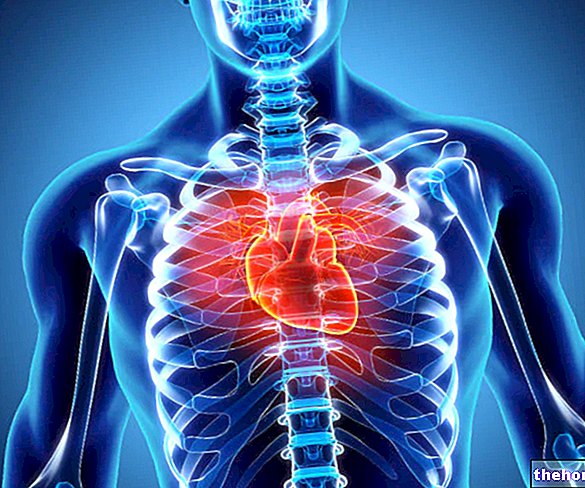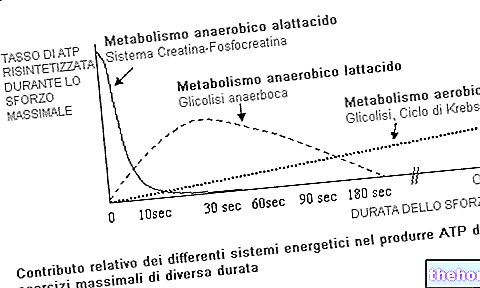Edited by Dr. Stefano Casali
Acute fatigue
Exercise urges you to implement a whole series of adjustments:
- metabolic;
- neuroendocrine;
- cardiorespirators;
which allow us to cope with the increased metabolic demands imposed by the workload. If the "intensity of physical exercise" is significant and equal to our maximum capacities (maximal intensity) and the effort continues over time, these adjustments become progressively less efficient (they "struggle" to adapt) and the body warns and shows symptoms acute fatigue.
Acute fatigue is a complex phenomenon
It can be defined as the "acute limitation of performance that implies both an increase in the perception of the effort necessary to support a certain load, and an "inability to support the" intensity, duration and possibly the imposed rhythm'.
Fatigue is characterized by two elements:
Drop in performance (objective);
Increased perception of effort (subjective).
The athlete is no longer able to sustain a certain effort and feels that this has become much more "tiring" and is no longer able to support it.
Muscle wisdom
Series of mechanisms by which the fatigued muscle tends to protect itself by limiting its performance (try not to overload its fibers, to avoid both macroscopic damage, i.e. clinically appreciable such as strains, tears, etc. and microscopic ones characterized by lesions on the individual fibers ).
Causes of acute fatigue:
depletion of energy reserves [reduction of ATP and CP (phosphocreatine) stocks] "alactacid" debt if it is not "paid" quickly (replenishment of ATP and CP stocks) prevents the muscle from continuing to contract.
long-lasting sports activities: depletion of glycogen stores and a noticeable decrease in efficiency: muscles can continue to contract by resorting to fats.
In extreme cases, the depletion of muscle and hepatic glycogen stores leads to a real collapse of blood glucose values (hypoglycemia). it can be shortened if carbohydrates are taken at the end of the effort. Athletes who practice disciplines capable of fully consuming glycogen stores should supplement the reserves during exercise with maltodextrin or fructose already during the course of the competition itself and this reconstitution is accelerated if glutamine is taken together with carbohydrates. before the race, the diet should preferably be with a prevalence of glycidic intake with foods consisting of complex sugars (foods rich in starch such as potatoes, bread and pasta) in order to increase the initial glycogen content in the muscles.
.jpg)
Other articles on "Fatigue - Overtraining Syndrome -"
- Muscle Pain and Chronic Fatigue
- How to recognize overtraining




























